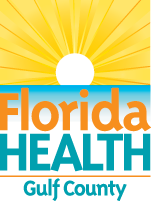It's a New Day in Public Health.
The Florida Department of Health works to protect, promote, and improve the health of all people in Florida through integrated state, county, and community efforts.
Gulf Through With Chew Week 2017PR
February 20, 2017
Feb. 20, 2017
Raising Awareness of the Dangers of Smokeless Tobacco
Department of Health-Gulf, Tobacco Free Gulf Partnership and Tobacco Free Florida are raising awareness during “Through with Chew Week”
Contact
Sarah Hinds, PIO
Sarah.Hinds@flhealth.gov
850-227-1276
Port St. Joe, Fla. – The Florida Department of Health in Gulf County, Tobacco Free Gulf Partnership and the Florida Department of Health’s Tobacco Free Florida program are raising awareness about the dangers of smokeless tobacco – like chew and dip – during Through With Chew Week. This national public awareness campaign was created to reduce the use of smokeless tobacco among young people, and Tobacco Free Florida aims to help combat this deadly addiction. Through With Chew Week takes place Feb. 19-25, with the Great American Spit Out – a day when smokeless tobacco users join together to quit – on Feb. 23.
“Smokeless tobacco products contain harmful chemicals that are known to cause cancer,” said Marsha Lindeman, Administrator for the Florida Department of Health in Franklin and Gulf Counties. “Youth who use smokeless products are more likely to experiment with other types of tobacco. Studies have shown that adolescent boys who use smokeless tobacco have a higher risk of becoming cigarette smokers.”
To raise awareness about the dangers of smokeless tobacco use, Gulf County Students Working Against Tobacco (SWAT) and DOH-Gulf staff have scheduled a variety of activities during school and sporting events, including display tables with educational information, poster and essay contests, and classroom learning sessions.
At least 28 cancer-causing chemicals have been identified in smokeless tobacco.[i] Smokeless tobacco users have an 80 percent higher risk of oral cancer and a 60 percent higher risk of esophageal cancer and pancreatic cancer compared to non-users.[ii] Apart from cancer, smokeless tobacco users can develop other oral health issues, such as mouth sores, gum recession, tooth decay and permanent discoloration of teeth.[iii] The use of some types of smokeless tobacco products is also associated with an increased risk of heart disease and fatal stroke.[iv]
Currently, there is no scientific or medical evidence that proves smokeless tobacco use is an effective method to help people quit smoking. Floridians who want to quit any form of tobacco have access to the state’s free and proven-effective resources. For more information, please visit www.tobaccofreeflorida.com/quityourway
About the Florida Department of Health
The department, nationally accredited by the Public Health Accreditation Board, works to protect, promote and improve the health of all people in Florida through integrated state, county and community efforts.
Follow us on Twitter at @HealthyFla and on Facebook. For more information about the Florida Department of Health please visit www.FloridaHealth.gov.
About Tobacco Free Florida
The department’s Tobacco Free Florida campaign is a statewide cessation and prevention campaign funded by Florida’s tobacco settlement fund. Since the program began in 2007, more than 159,000 Floridians have successfully quit using one of Tobacco Free Florida's free tools and services. There are now approximately 451,000 fewer adult smokers in Florida than there was 10 years ago, and the state has saved $17.7 billion in health care costs. To learn more about Tobacco Free Florida’s Quit Your Way services, visit www.tobaccofreeflorida.com or follow the campaign on Facebook at www.facebook.com/TobaccoFreeFlorida or on Twitter at www.twitter.com/tobaccofreefla.
[i] World Health Organization. Smokeless Tobacco and Some Tobacco-Specific N-Nitrosamines International Agency for Research on Cancer Monographs on the Evaluation of Carcinogenic Risks to Humans Vol. 89. Lyon, (France): World Health Organization, International Agency for Research on Cancer, 2007 [accessed 2015 Feb 10].
[ii] Boffetta, P, et al., “Smokeless tobacco and cancer,” The Lancet 9:667-675, 2008.
[iii] Tomar, SL. “Chewing Tobacco Use and Dental Caries Among U.S. Men,” Journal of the American Dental Association, 1999, 130: 160.
[iv] National Cancer Institute and Centers for Disease Control and Prevention. Smokeless Tobacco and Public Health: A Global Perspective. Bethesda, MD: U.S. Department of Health and Human Services, Centers for Disease Control and Prevention and National Institutes of Health, National Cancer Institute. NIH Publication No. 14-7983; 2014.





Connect with DOH